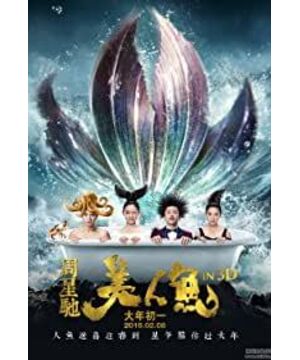Just
imagine the picture sense of this text: the woman said one sentence, get out! The man hesitated for a moment, then rolled away with his head on the ground.
Typical text. And simple text stalks have no context. In this era, under the bombardment of various elements of the Internet, it is generally not funny when presented by means of film and television alone. For example, when I watched Macau Fengyun 3, I kept playing the stalk "I want to be quiet, who is Jingjing?", repeated nearly ten times, and I got goosebumps when I heard it, no less than listening to the opening song of the Spring Festival Gala rap .
Going back to the text just now, now, we want to insert the picture of "go away" into a film and television work, and let it achieve the purpose of making the audience laugh. What do we need to do?
①Chou Xingchi came to act
②Chou Xingchi came to direct
③In the story of the film before this picture, we put up a character like this: This man who is about to be rolled, his brain is too stupid to die, he does not understand the world, he is a man who has just arrived on earth one day. The people of the planet Balabaram, and the people of the planet Balabaram cannot curl up, otherwise they will become incontinent. All right, go away.
The comedy technology of laughter is changing with each passing day, and it is updated faster than my hairstyle, especially when it comes to playing with text memes, which is quite time-sensitive. The person who uses "I want to be quiet" on the first day is a genius, and the next day is a fool . In order to make this joke burst out at the moment when the character blurts out, in O 3, you have to set up a girl who is very ambiguous with this character and called Jing Jing or some other setting, but O 3 does not have it, so it is stupid.
"I want to be quiet" alone is much worse than "go away", because there are generally two types of text stalks: one is "I want to be quiet", which is a simple, stupid, and has no picture at all. ; One is the burden of "go away" based on text and supplemented by pictures. Having a picture means that there is something to do. This is the bible of film and television works, so it must not be more embarrassing than the former when presented alone.
Well, the stalk of "go away" was actually used by Stephen Chow in the last set of shots of a scene in "The Mermaid", becoming the last burden in the comedy burden of this scene. In order to keep this nonsensical plot out of play, the setting given by Stephen Chow's team was that the woman was extremely angry at the time and was the boss of the man, so the man got out. When I saw this, most people laughed. I didn't laugh. I calmed down for a while, and thought about it for a long time. I think that as a burden at the end, Zhou Xingchi's burden, the meaning is always a little bit worse.
The bad place is Zhou Xingchi's years.
2.
Comparing "The Mermaid" with the previous "Journey to the West and Conquering the Devil", you will find that the whole film is not so "Chou Xingchi", and his temperament is gradually getting rid of his own shadow.
In fact, through the film, I can see Zhou's compromise on the point of laughter. This compromise means that the center of the Chinese film and television industry has shifted to the mainland in the past ten years, and Hong Kong people have moved north. The Internet is fermenting for a generation, and Zhou, who is getting older, has been unable to keep up with the pace of the rapid transformation of the laughter, so he needs the co-writers of the new media industry in the mainland. I can figure out that Lu Zhengyu explained to Zhou Xingchi that he likes to call you sister when he is scolding people. Zhou Xingchi muttered these words while pondering the picture.
However, as a non-witness of the Internet and the mainland, Zhou is deconstructing the burden with the eyes of a witness, just like our screenwriters born in the 1980s trying to tell the story of an old Cultural Revolution, there is always a little difference in form and spirit. What's worse is Zhou's years, so that when some burdens are presented after his deconstruction, we will feel embarrassed.
In fact, at least in this film, Stephen Chow's comedy skills have maintained the consistent level of the previous films, but there are only a few parts that we have watched too much, so we don't find it funny. This sensory difference stems from the timeliness of comedy baggage and the insurmountable thinking gap between the creator's age and environment.
three
As a comedy practitioner, it must be admitted that in the general direction of Chinese film and television, there has not been a successor who can fully take over the mantle of Stephen Chow, and not everyone can afford the halo of the king of comedy. This kind of thing that no successor calls emotion makes Zhou's works so valuable, and also accommodates the shortcomings of his works that are rarely addressed.
Of course, I'm not here to ridicule the shortcomings of the story text. Many movie critics will tell you that this place is not right while giving you spoilers. Let me just say one thing, it would be better if the ending had ten or fifteen minutes more to tell the story, because in order to cater for the censorship, the ending method of forcibly covering the story with the police cleaning up the mess is really uncomfortable the more I watch it, I am enough .
In fact, I gave this film a pretty high rating and would highly recommend it to those around me. Mainly because as a comedy practitioner, I have always believed that the fault tolerance of comedy is very high, and I can tolerate those unreasonable plots that appear in the plot to cater for the laughs. This kind of irrationality will make me pass by in laughter and not care about it. In the use of this technology, Mr. Zhou Xingchi is extremely excellent.
Generally speaking, the so-called film technology actually serves the imagination of the director. Stephen Chow has no shortage of imagination, and I want to talk about a few other things.
Fourth
, because it is about environmental protection, this is a very big pattern in Zhou Xingchi's works. Supplemented by Mr. Zhou Xingchi's upright view of good and evil, these two points are enough to make this work stand out in the current Chinese film environment and teach people to behave. Because the Chinese film environment is so bad, many film workers don't even have a basic concept of good and evil, let alone the pattern, so they can produce works like "Old Pao'er".
In fact, we have always regarded Stephen Chow's comedy works as serious works, presumably he himself is the same, but as serious works, the tone is always a little worse. For so many years, we have been waiting for his next work, the next work, waiting for him to continue that breath, but now it seems that it will not, nor will it in the future, he will maintain the standard, But it won't touch a higher level. This is due to the character, it's in the bones, it can't be changed.
What exactly is this tone? You can understand that Zhou Xingchi is a very pure person, so pure that every story he wants to tell is very simple. The films he shoots are very pure: the protagonist awakens, flashes a character arc, and completes self-redemption. Everything the protagonist experiences serves this arc. As a theatrical movie, as a popcorn blockbuster, this is enough, but as a serious work, it seems that it is not enough.
In Zhou's works, it is consistent with a superficial character setting, where justice is justice and evil is evil. So, after watching The Mermaid, do you think Zhou really thinks rich people are so violent? Is Deng Chao the only good man left for the rich? Are all the little girls who look soft and weak all silly and sweet? Is there really something wrong with Zhou's three views?
That is the work of Stephen Chow in your eyes, not the work in the eyes of Stephen Chow. All this is precisely because Zhou Xingchi is too pure. This purity not only shapes him, but also limits him. Let him not dig deep enough into human nature, and he often does not see deeper thinking in his works. All the views of good and evil, all the emotions, all the character development, all of it, all framed in the comic structure that has been inherent in him for many years, impartiality, it is there.
In fact, to this day, I have been expecting Mr. Stephen Chow to go beyond the framework of comedy and produce a work that breaks people's hearts, but it should be difficult to see. "Kung Fu" should be the best work of Stephen Chow's directorial career. Because in the end, the masters, in addition to imagination, are actually fighting for vision, pattern, values, and character, but this is precisely not Zhou's strength. Without this kind of support in the realm, when we taste Mr. Stephen Chow's new works on the big screen after three years, there is still an aftertaste while laughing.
Because there is no regret for thinking about human nature at that level, it is the constraint that makes Mr. Stephen Chow only a comedy master but not a film master. On the other hand, however, we can also say that such a person is pure, pure enough that no one needs to be crowned with any halo.
He just wanted to do what he wanted to do.
View more about The Mermaid reviews











